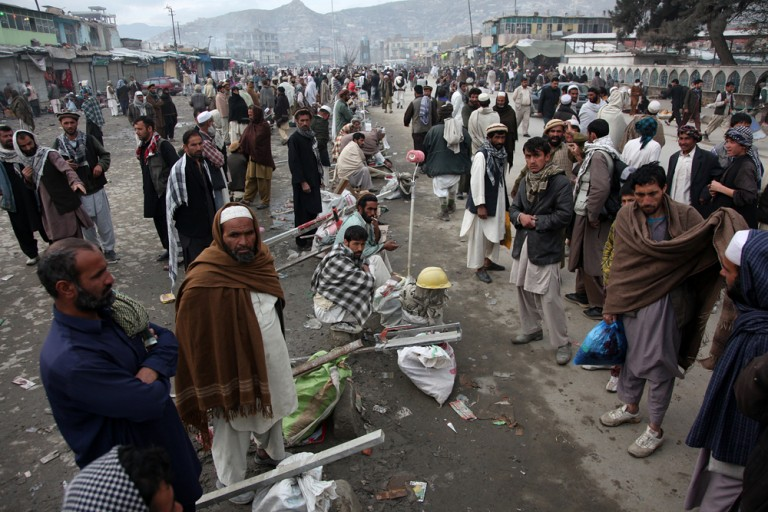RASC News Agency: While the Taliban’s Ministry of Labor and Social Affairs publicly boasts of a rising number of employment opportunities in Qatar for Afghanistani workers, insiders within the ministry describe a very different reality: a closed, patronage‑driven pipeline in which senior Taliban officials hand out visas to relatives, tribal allies, and politically loyal cadres shutting skilled but unaffiliated Afghanistanis out of any fair chance. According to the Taliban’s own communique, Qatar has allocated 1,300 new positions, bringing the total number of promised slots to 2,000. Behind the glossy figures, however, ministry insiders told RASC News Agency that the nomination and vetting process is “wholly controlled by top Taliban officials.” There is no open call, no competitive shortlist, no public registry, and no independent oversight. Former employees of the ministry are blunt: “There is no transparent or competitive system for workers to register. Officials simply put forward their own relatives and associates, who then receive work visas through coordination with the Qatari embassy.”
Sources further allege an expanding black market in promises: intermediaries connected to the regime reportedly solicit money from desperate applicants, offering to “place” them on deployment lists promises that are frequently fraudulent and extortionary. Skilled workers without political, tribal, or ideological ties to the Taliban are effectively structurally excluded from any realistic participation. This tightly controlled labor-export channel emerges against the backdrop of economic freefall, mass unemployment, and a collapsed administrative state. Since seizing power in August 2021, the Taliban purged tens of thousands of civil servants and replaced them with loyalists, dismantling institutional capacity while deepening social and ethnic patronage networks. With banking restrictions, sanctions, and persistent fiscal contraction, unemployment has metastasized into one of Afghanistan’s most destabilizing social crises pushing countless young Afghanistani men to seek work in the Gulf. Now even those legal pathways are captured by Taliban power brokers.
The Taliban’s announcement that “registration and occupational selection” will soon begin conspicuously omits any mention of who will supervise the process, what the criteria are, or how corruption and discrimination will be prevented. The absence of published eligibility standards, appeals mechanisms, third‑party monitors, or audit trails confirms what sources have already said: the program is designed to serve the regime’s inner circles, not the Afghanistani public. This calculated monopolization of opportunity carries profound social and economic consequences. Public trust collapses when scarce livelihoods are converted into patronage rewards. Brain drain accelerates not because the best people are chosen, but because the most connected are exported, incentivizing loyalty over merit. Informal bribery networks thrive, further criminalizing access to survival. Remittance flows, which could soften the economic crisis, are redirected to regime-aligned households, concentrating wealth and widening inequality. Vulnerable workers blocked from legal routes are pushed toward irregular migration channels, heightening risks of trafficking, debt bondage, and abuse.
This is not merely mismanagement; it is deliberate social engineering. By controlling who leaves, who earns, and who sends money back, the Taliban are trying to rebuild a patronage state funded by the labor of the desperate. The regime’s rhetoric of “national opportunity” thus masks a feudalized economy of privilege, in which visas function as political currency and survival is conditioned on allegiance. For the millions trapped inside a suffocating economy, the message is unmistakable: without the right connections, merit is meaningless. And for those outside, watching from exile or neighboring borders, it is another reminder that the Taliban’s promises of “opportunity” and “reform” are performative facades stretched over a machinery of exclusion, profiteering, and control.






